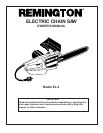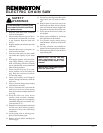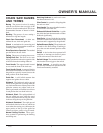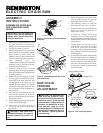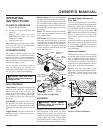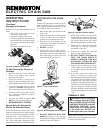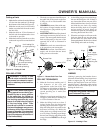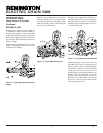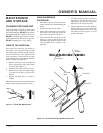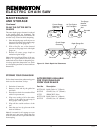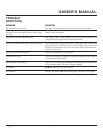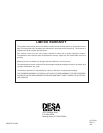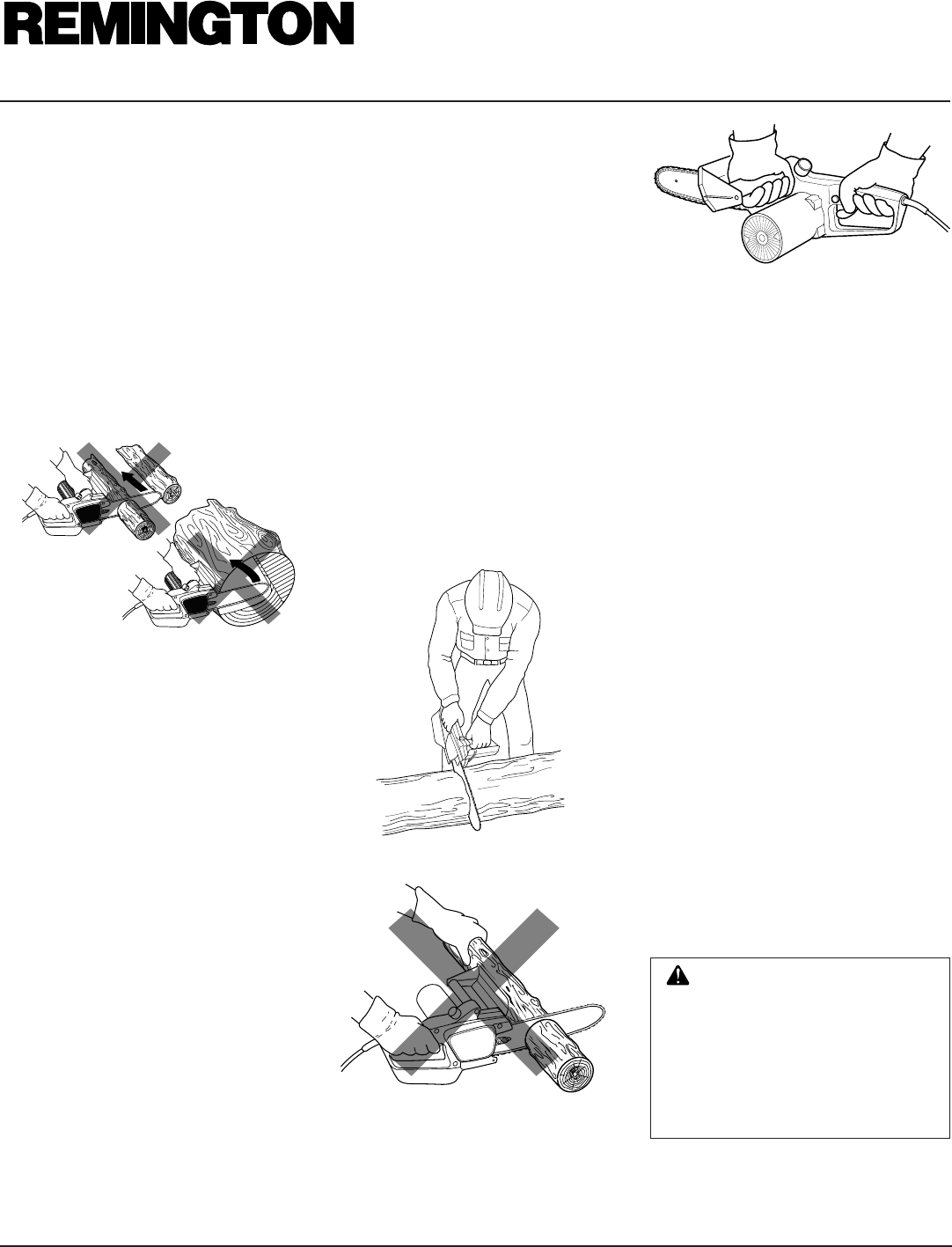
6
101755
®
ELECTRIC CHAIN SAW
OPERATING
INSTRUCTIONS
Continued
Examples of Kickback
With the saw in operation, kickback occurs
when:
• The chain at the guide bar nose
touches any solid object.
• Incorrectly starting a boring cut.
•A cutter on guide bar nose strikes the
bottom of the saw cut while the guide
bar is being reinserted in the cut (See
Figure 6).
• The chain is pinched in the cut.
Figure 6 - Examples of Kickback
To Help Reduce the Chance of
Kickback
1. Hold the chain saw firmly with both
hands with thumbs and fingers
encircling the handles.
2. Always be attentive to what you are
doing, be alert for shifting of the log or
other conditions which will cause a pinch.
3. Always know where the nose of the
guide bar is. DO NOT let the guide bar
nose contact any object (See Figure 6).
4. Never use a dull or loose chain. Always
use a correctly sharpened, properly
tensioned chain.
5. Use your saw within its capacity. DO
NOT
bury the nose (See Figure 6).
6. MAINTAIN SAFETY SYSTEM.
Normal Wear On Saw and its
Effects On Kickback Safety
Follow the maintenance instructions in this
manual on cleaning the saw, proper storage,
chain and guide bar maintenance. Regular
inspection and a good maintenance pro-
gram will increase the service life of your
saw. Even with proper sharpening, kick-
back potential can increase with each filing.
CUTTING WITH THE CHAIN
SAW
Cutting with your electric chain saw can be
made easier and safer if you will follow
these simplified instructions. Before trying
to cut with the chain saw be sure to:
1. Read all the safety precautions on the
front cover.
2. Support the log to be cut off the ground
so the saw chain does not touch the
ground as it cuts through the wood.
3. Keep the nose of the guide bar from
contacting a log, branch, the ground or
any other obstruction.
4. DO NOT overreach.
5. Stand with your weight evenly
distributed on both feet and slightly to
the left side of the saw. This keeps your
body from being in a direct line with
the cutting chain (see figure 7).
Figure 7 - The Correct Stance
Figure 8 - Do Not Operate With One Hand
Figure 9 - Operate With Both Hands
6. DO NOT OPERATE WITH ONE
HAND
(See Figure 8). Use a firm grip
with thumbs and fingers encircling both
handles as shown in Figure 9.
7. When ready to make a cut, push in the
lockout button and squeeze the trigger
switch. Start the chain saw above the
log. Always bring the saw up to speed
before letting the chain touch the wood.
8. When starting a cut, be alert to possible
bouncing or skating (sideward
movement) of the saw.
9. Place the saw against the wood and
guide it using a light pressure.
10. DO NOT FORCE THE SAW SO
THAT THE CHAIN SPEED IS
GREATLY REDUCED. THIS WILL
OVERLOAD THE MOTOR AND
CAN CAUSE MOTOR BURN OUT.
11. Stop the saw by releasing the trigger
switch. Make sure the chain has come
to a complete stop before setting the
saw down.
12. If you have never used a chain saw
before, in addition to reading and
understanding the operating instructions,
you should seek informed practical
instruction from your chain saw dealer
or other knowledgeable individuals. As
a minimum, you should practice cutting
logs on a sawhorse or cradle until you
are able to maintain a steady even cutting
rate before attempting to cut limbs from
a tree.
TRIMMING A TREE
WARNING: DO NOT OPERATE
your chain saw while IN A TREE,
ON A LADDER, ON ANY OTHER
UNSTABLE SURFACE or IN ANY
AWKWARD POSITION which
might cause you to loose control
of the chain saw. DO NOT cut
limbs higher than your shoulder.
Note:
When conditions are encountered
which are beyond your experience or capac-
ity seek professional help.



